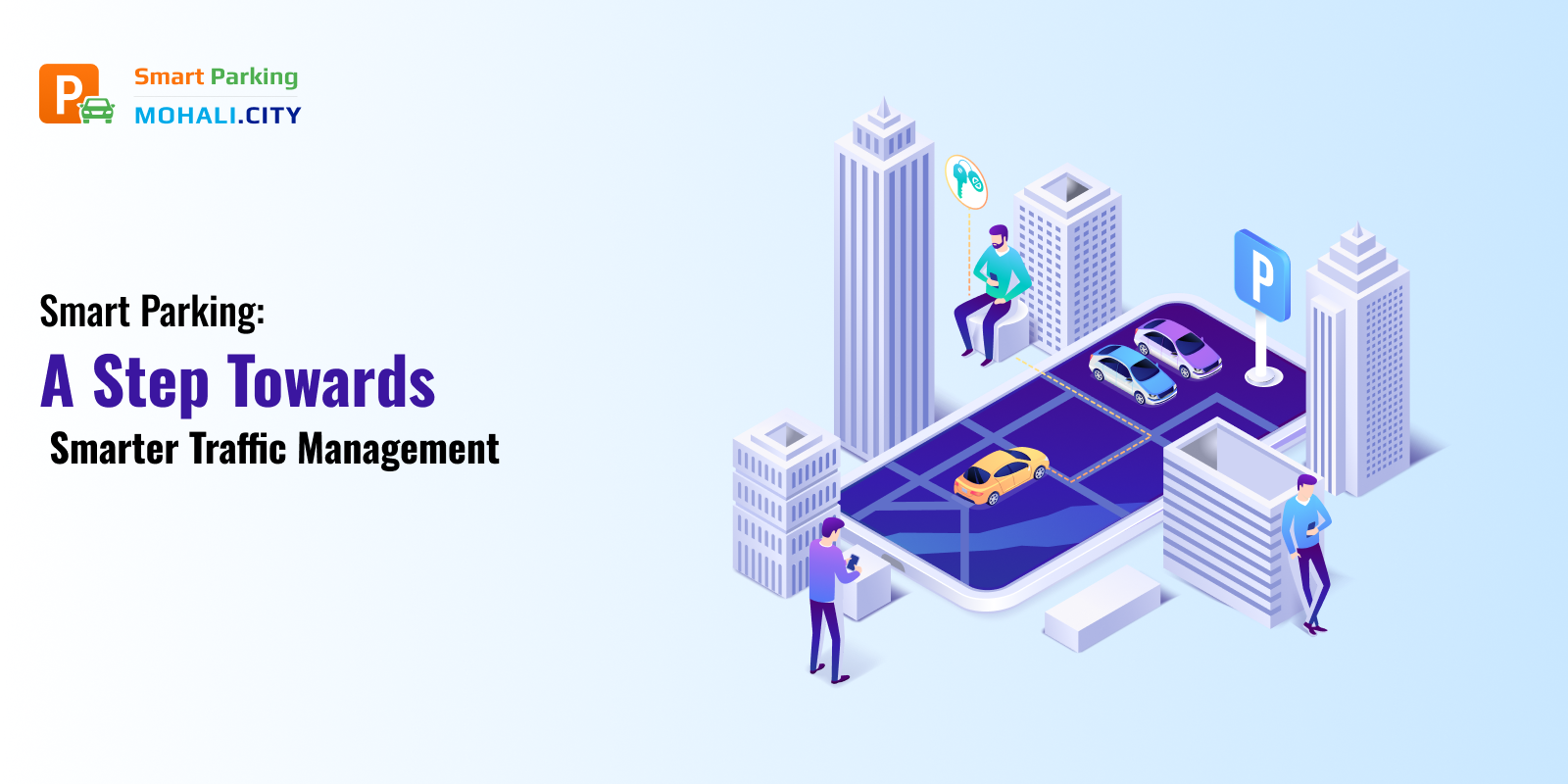Urbanization is rapidly increasing, leading to a surge in the number of vehicles on the roads. With limited parking spaces and inefficient parking systems, cities worldwide face severe traffic congestion, increased pollution, and frustrated commuters. Smart parking has emerged as a revolutionary solution to these challenges, helping cities manage parking efficiently and reduce unnecessary traffic.
By leveraging advanced technologies such as the Internet of Things (IoT), Artificial Intelligence (AI), and real-time data analytics, smart parking systems are transforming urban mobility. This blog explores how smart parking in cities is a step toward smarter traffic management and how it benefits commuters, businesses, and city planners.
Understanding Smart Parking Systems
Smart parking refers to an intelligent system that helps drivers find available parking spots quickly and efficiently. It uses sensors, cameras, mobile apps, and cloud-based platforms to provide real-time information about vacant parking spaces. These systems guide drivers to the nearest available parking spot, reducing the time spent searching for parking and minimizing traffic congestion.
Key Components of Smart Parking Systems
IoT Sensors – Placed in parking spots, these sensors detect vehicle presence and send real-time updates to a central system.
Mobile Applications – Drivers can use apps to check parking availability, reserve spaces, and make digital payments.
Automated Payment Systems – Smart parking integrates digital payment solutions, making transactions seamless.
AI and Data Analytics – These technologies analyze traffic patterns and parking trends to optimize parking space utilization.
Smart Signages and Guidance Systems – Electronic boards display real-time parking availability, helping drivers navigate easily.
How Smart Parking Contributes to Smarter Traffic Management
One of the major causes of urban traffic congestion is indiscriminate parking and inefficient space utilization. Smart parking addresses these issues through advanced automation and data-driven insights. Here’s how:
1. Reduces Traffic Congestion
A significant percentage of urban traffic congestion is caused by vehicles looking for parking. Smart parking helps reduce this by guiding drivers to available spots in real-time. This minimizes unnecessary driving and improves road efficiency.
2. Saves Time for Commuters
Finding parking in busy city areas can take 15-30 minutes or more. Smart parking solutions eliminate this hassle by allowing commuters to check space availability in advance and reserve slots through mobile apps.
3. Enhances Fuel Efficiency and Reduces Pollution
Continuous vehicle movement in search of parking increases fuel consumption and air pollution. Smart parking systems reduce idle time, leading to:
Lower fuel wastage
Reduced carbon emissions
A cleaner and greener city environment
4. Improves Safety and Security
Smart parking integrates CCTV surveillance, automated access control, and license plate recognition, ensuring enhanced safety for vehicles and pedestrians. It also prevents illegal parking and theft.
5. Boosts Revenue Collection for City Authorities
Smart parking systems automate parking fee collection, reducing revenue leakage. With digital payment integration, users can pay conveniently through mobile apps, credit cards, or e-wallets.
6. Optimizes Parking Space Utilization
Smart parking technology helps city planners monitor parking trends and adjust space allocation accordingly. This ensures better planning and prevents overcrowding in high-traffic areas.
Key Benefits of Smart Parking for Different Stakeholders
For Commuters:
- Faster and stress-free parking
- Reduced fuel consumption and costs
- Improved travel experience
For Businesses:
- Increased customer convenience
- Better space management for malls, offices, and restaurants
- Enhanced customer satisfaction and loyalty
For City Authorities:
- Improved traffic control and road safety
- Higher revenue generation from parking fees
- Enhanced urban planning and smart city development
Smart Parking Implementation in Cities
Several cities around the world are adopting smart parking solutions to enhance urban mobility. Here’s how the process works:
1. Installing IoT-Based Sensors
Cities equip parking lots with IoT sensors to detect and update real-time availability.
2. Developing Mobile Apps for Drivers
Commuters use mobile applications to locate, reserve, and pay for parking spaces effortlessly.
3. Integrating AI for Data-Driven Insights
AI helps analyze parking trends, optimize traffic flow, and forecast peak hours.
4. Implementing Automated Payment Systems
Digital payments reduce cash handling, ensuring faster and hassle-free transactions.
5. Using Smart Signage for Parking Guidance
Electronic displays provide live parking updates, making navigation easier.
Challenges in Smart Parking Implementation
Despite its numerous advantages, smart parking implementation comes with challenges:
High Initial Investment – Deploying smart sensors, AI tools, and mobile platforms requires significant financial investment.
Integration with Existing Infrastructure – Some cities have outdated parking systems that may not be compatible with smart technologies.
Public Awareness and Adoption – Many commuters are unaware of smart parking benefits, requiring proper awareness campaigns.
Technical Maintenance and Support – Regular updates and system maintenance are needed for seamless operation.
To overcome these challenges, cities must collaborate with reliable technology partners like ToXSL Technologies, which specializes in smart parking solutions and urban mobility innovations.
The Future of Smart Parking and Traffic Management
The future of smart parking is AI-driven automation, smart city integration, and seamless IoT connectivity. With the rise of autonomous vehicles and electric cars, smart parking will evolve to support:
Fully automated parking systems
Integration with EV charging stations
Advanced AI-driven traffic control
Blockchain-based parking payments
Cities that invest in smart parking today will experience smoother traffic flow, improved urban mobility, and enhanced quality of life in the coming years.
Final Thoughts
Smart parking in cities is no longer a luxury but a necessity for efficient traffic management. By reducing congestion, saving time, and optimizing parking spaces, smart parking is paving the way for smarter, safer, and more sustainable urban environments.
At ToXSL Technologies, we specialize in cutting-edge smart parking solutions that help businesses and city planners create a seamless parking experience. If you’re looking for an innovative smart parking system, contact us today and transform your city’s traffic management!












Share this post on: